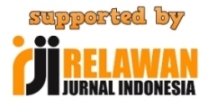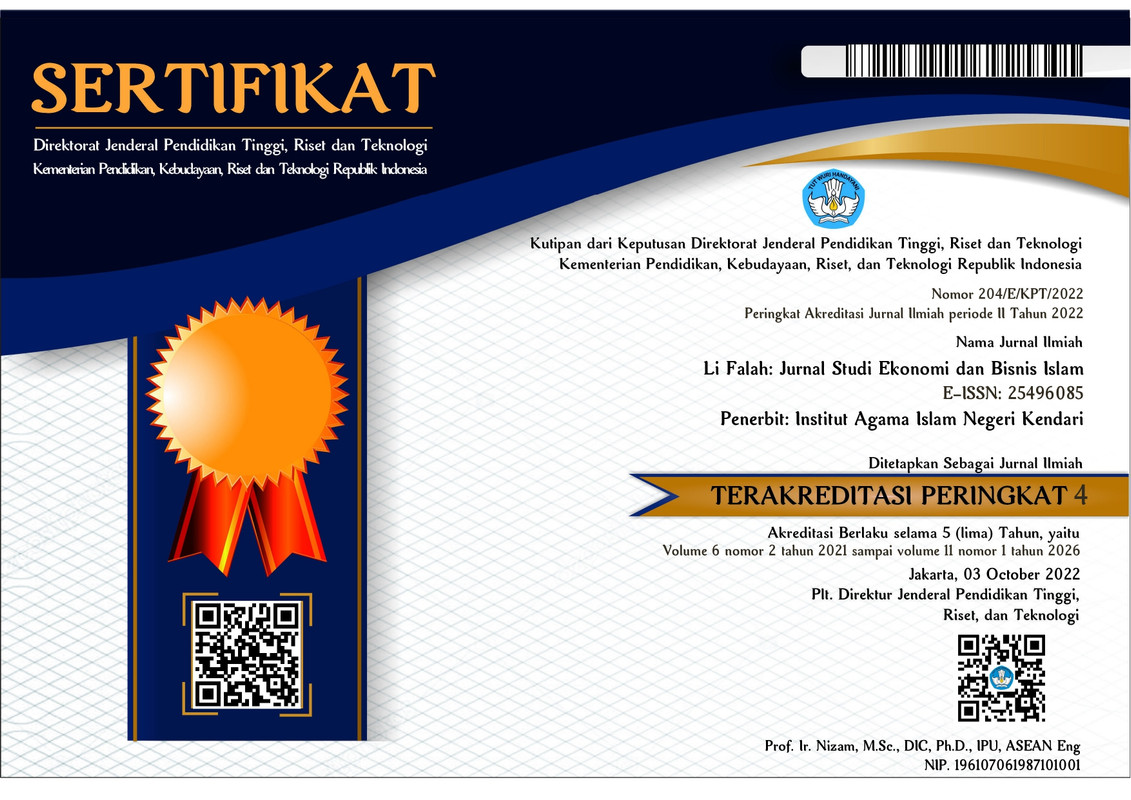How Loan Distribution and Credit Troubled in Fostered Partners can be Done? Case Study: CSR Fund from PT. Bukit Asam Tbk. Tanjung Enim, South Sumatra, Indonesia
Abstract
Keywords
Full Text:
PDFReferences
Alessi, L., & Detken, C. (2018). Identifying excessive credit growth and leverage. Journal of Financial Stability, 35(1), 215-225. doi:https://doi.org/10.1016/j.jfs.2017.06.005
Balqiah, T. E., Astuti, R. D., Yuliati, E., & Sobari, N. (2017). Corporate social responsibility: Linkege business performance and social performance. The South East Asian Journal of Management, 11(2), 120-141. doi:https://doi/org/10.21002/seam.v11i2.8517
Bholat, D., Lastra, R. M., Markose, S. M., Miglionico, A., & Sen, K. (2018). Non-performing loans at the dawn of IFRS 9: Regulatory and accounting treatment of asset quality. Journal of Banking Regulation, 19(1), 33-54. doi:https://doi.org/10.1057/s41261-017-0058-8
Budiarti, M., & Raharjo, S. T. (2014). Corporate social responsibility (CSR) dari sudut pandang perusahaan. Share Social Work Journal, 4(1), 13-29. doi:https://doi.org/10.24198/share.v4i1.13045
Carroll, A. (2018). Corporate social responsibility (csr) and corporate social performance (csp). In R. K. (Ed.), The SAGE encyclopedia of business ethics and society (pp. 746-754). SAGE Publications, Inc. doi:https://www.doi.org/10.4135/9781483381503.n265
Flannery, M. J. (1998). Using market information in Prudential Bank Supervision: A review of the U.S. Empirical Evidence. Journal of Money, Credit and Banking, 30(3), 273-305. doi:https://doi.org/10.2307/2601102
García-Sánchez, I. M., & García-Sánchez, A. (2020). Corporate Social Responsibility during COVID-19 Pandemic. Journal of Open Innovation: Technology, Market, and Complexity, 6(4), 1-21. doi:https://doi.org/10.3390/joitmc6040126
Habaora, F., Fuah, A. M., Abdullah, L., Priyanto, R., Yani, A., & Purwanto, B. P. (2019). Attitude analysis of Bali cattle farmers toward credit program based on agroecosystems in Timor Island. International Journal of Innovative Science and Research Technology, 4(9), 769-776.
Ikhwansyah, I., Chandrawulan, A., & Amalia, P. (2018). Optimalisasi peran Badan Usaha Milik Negara (BMUN) pada era Masyarakat Ekonomi Asean (MEA). Jurnal Media Hukum, 25(2), 150-161. doi:10.18196/jmh.2018.0110.150-161
Kasmir. (2008). Dasar-dasar perbankan. Jakarta: Raja Grafindo Persada Press.
Klein, R. W. (2012). Principles for insurance regulation: An evaluation of current practices and potential reforms. The Geneva Papers on Risk and Insurance - Issues and Practice, 37(1), 175-199. doi:https://doi.org/10.1057/gpp.2011.9
Lou, J. (1998). China's Bank non performing loan problem: Seriousness and causes. The International Lawyer, 34(4), 1147-1192.
Martin, Salinding, M. B., & Akim, I. (2017). Implementasi prinsip corporate social responsibility (CSR) berdasarkan Undang-Undang Nomor 40 Tahun 2007 Tentang Perseroan Terbatas. Journal of Private and Commercial Law, 1(1), 111-132.
Martini, N. P., & Indriyani, N. M. (2019). Professional supervisor board skills in the efficiency of credit distribution of village credit institutions in paternalistic culture. International Journal of Advances in Social and Economics, 1(5), 139-143. doi:https://doi.org/10.33122/ijase.v1i5.139
Muneem, A., Mohd Razif, N., & Ali, A. (2020). Issues on restructuring of a financing facility in Malaysian Islamic Banks. Jurnal Syariah, 28(1), 105-124. doi:10.22452/https://doi.org/10.22452/js.vol28no1.5
Munyua, C. (2016). Factors affecting loan default in microfinance institution in Kirinyaga Country. International Journal of Business and Management, 4(3), 37-71.
Nazila, L. R., Moch. Dzulkirom, A. R., & Sudjana, N. (2016). Analisis penyelesaian kredit bermasalah atas agunan harta tidak bergerak (Studi pada PT Bank Mandiri Tbk. Unit Mikro Cabang Probolinggo Kraksaan). Jurnal Administrasi Bisnis, 33(1), 78-85.
Putra, S. A., Kertahadi, & Zahro, Z. A. (2015). Evaluasi sistem dan prosedur pemberian kredit modal kerja dalam upaya meningkatkan efektivitas pengendalian intern (Studi pada PT. Bank Rakyat Indonesia Cabang Jombang Unit Plandaan). JAB: Jurnal Administrasi Bisnis, 27(2), 1-10.
Riwukore, J. R. (2020). Kepemimpinan transformasional (Peningkatan sumber daya manusia). Solok: Insan Cendekia Mandiri Press.
Susanto, Y., Riwukore, J. R., Riance, A., Sardiyo, & Habaora, F. (2020). The effect of complexity of the competence independence task on integrity of the implication in the quality result auditor examination in North Musirawas District. International Journal of Scientific and Technology Research, 9(4), 3591-3597.
Susatyo, R. (2011). Aspek hukum kredit bermasalah di PT. Bank International Indonesia Cabang Surabaya. DIH: Jurnal Ilmu HUkum, 7(13), 11-20.
Turmudi, M. (2016). Manajemen penyelesaian pembiayaan bermasalah pada lembaga perbankan syariah. Li Falah: Jurnal Studi Ekonomi dan Bisnis Islam, 1(1), 95-106. doi:http://dx.doi.org/10.31332/lifalah.v1i1.477
Yang, F. J., Lin, C. W., & Chang, Y. N. (2010). The linkage between corporate social performance and corporate financial performance. African Journal of Business Management, 4(4), 406-4.
Yulianita, N. (2008). Corporate social responsibility (CSR) sebagai aktivitas social marketing public relations. MediaTor, 9(1), 123-134.
DOI: http://dx.doi.org/10.31332/lifalah.v6i1.2638
Copyright (c) 2021 Jefirstson Richset Riwukore

This work is licensed under a Creative Commons Attribution-ShareAlike 4.0 International License.
Li Falah : Jurnal Studi Ekonomi dan Bisnis Islam, Indexed In
Accredited By
View My Stats
Organized by : Fakultas Ekonomi dan Bisnis Islam
Published by : Institut Agama Islam Negeri Kendari
Jl. Sultan Qaimuddin No. 17 Baruga Kota Kendari Provinsi Sulawesi Tenggara
phone. +62401-3193710
Fax. +62401-3193710
Email: [email protected]



















